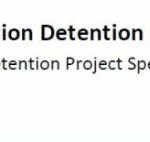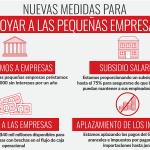By Vilma Filici
vilma@filici.com
TORONTO. I have been working as an Immigration Consultant for almost 30 years. One would think that by now I would have grown some really thick skin and be able to exercise professional detachment. That would be my wish were it not for the anger and frustration that abuse of power and injustice awaken in me.
On Thursday I attended a mediation before an immigration officer. Pedro, the client had appealed the refusal of his wife’s application for permanent residence to Canada. The case was well prepared and well documented. Pedro was an incredibly eloquent and credible witness. The officer’s job was to look at the case in its totality and decide whether the case had a good chance of succeeding if it went before a tribunal.
If the officer came to the conclusion that the case would succeed at a full hearing he was to concede the appeal which meant the application for permanent residence would continue to landing. No more time would have been wasted and the couple would be together in Canada in about 8 months. This procedure was created for the immigration appeal division to reduce their backlog; save money and expedite cases.
The visa officer responsible for the refusal did not believe the relationship was genuine. The reasons for coming to that conclusion were a few: An age difference; a long distance relationship, and a proxy marriage. The client managed to obtain documentary evidence to explain each one of the concerns raised in the refusal letter in order to establish that the marriage was in good faith.
At the mediation the officer grilled Pedro for about 45 minutes. Some of the questions were rude and intrusive, but despite the aggressive behaviour of the officer Pedro kept a controlled disposition and answered every question as to leave no doubt that his marriage was genuine.
Pedro was found to be a convention refugee in Canada six years ago and obtained his permanent residence. Because of his problems in his country of origin he cannot go back to visit his wife. His wife was denied a visitor’s visa to come to visit him in Canada. Consequently, to spend time together they have to see each other in a third country. They have met in a third country three times in the last four years including spending two weeks together for their honeymoon.
When the couple decided to get married, Pedro sought the advice of a community centre to help him with the marriage process and with the subsequent sponsorship of his wife. Pedro asked the person helping him if he could get married in a third country and he was told that he could not get married in a third country as he had to be a citizen of the country to be married. Pedro was told that Canada immigration accepted proxy marriages for immigration purposes as long as a proxy marriage was legal in the country where it was celebrated. He proceeded to marry his bride by proxy on that advice.
Pedro’s last trip to spend time with his wife lasted for two weeks. Fourteen days before his mediation meeting his wife notified him that they were expecting their first child. His wife sent a report from her attending physician and an ultrasound film which Pedro proudly showed at the mediation appointment to the officer interpreter and mediator.
After the interview was finished the mediator asked the officer for a caucus discussion and they exited the room. They came back and the officer proceeded to tell my client that he was a very credible witness and had answered all of the questions in a straight forward and candid manner, but the officer stated he “did not like proxy marriages” therefore he was not going to concede and was going to leave it up to the client to either go ahead to a full hearing of the case or to withdraw it.
Pedro and his wife are legally married and he had more than enough documentation to demonstrate that the marriage is not only legal but also genuine. Normally there is no provision in the law for personal believes regarding the validity of the marriage and therefore the officer should not have based his decision on his feelings toward proxy marriages but in law. Unfortunately in this case we dealt with an administrative process. The officer had discretionary powers to make a decision as to the Genuineness of the relationship and his decision at this level cannot be appealed.
The mediator’s role in the proceeding was to give the officer his opinion as to the likelihood of the case being accepted at a full hearing. The mediator did give his opinion. He told the officer that there was overwhelming evidence that the clients were in a legal and genuine relationship, but the officer ignored that opinion. The mediator remained after the officer left the room and he was as visibly upset as Pedro and I were. The mediator expressed his opinion that the case would be approved at the full hearing and he also expressed his disappointment at the action of the officer. The client has the choice to go ahead or to withdraw his appeal and of course he is going to go ahead because he is in a serious committed relationship and so is his pregnant wife.
The Immigration Appeal Board is taking over a year to book hearings. After the hearing is heard it will take another year to year and a half to finalize the processing of Pedro’s wife case. The couple and young child will not be able to be together as a family for at least two and a half years.
When I arrived at the office I immediately called the officer as I wanted to discuss what had just transpired. I was informed that he was not at the office and that I could leave a message. It was the Thursday before Easter. There was a four day long weekend coming up. I am certain that the officer left work early so that he could prepare to enjoy the long weekend with his family. In contrast, Pedro had to go home and let his wife know that she would not be able to join him in Canada for another two and a half years and that he would not be able to be involved in his baby’s life for the first few years.
I am determined to find a way to expedite the hearing so that Pedro his wife and child can be together soon, but I cannot help to wonder how the officer can justify his actions to himself. I wonder if officers ever realize the unnecessary pain and hardship they impart on people and families.




Be the first to comment on "Discretionary powers in Immigration often cause unnecessary pain and hardship"